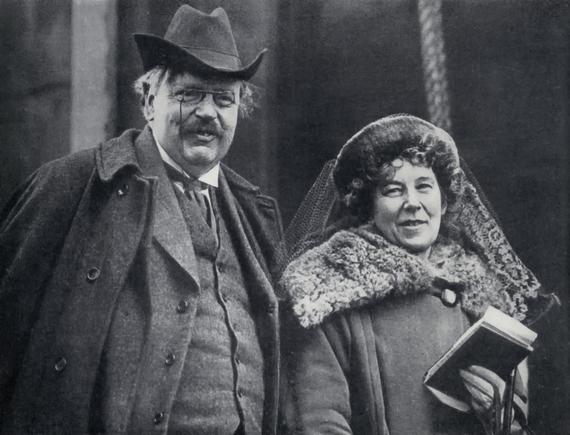Et. al presents: On Brave Old Bones
 I think I have said before how much beauty there is to be found in ordinary things. Or, if I haven’t, it’s been bouncing around in my head for a long time now, eager to stretch its legs on paper. The point of everyday elegance has been made more eloquently than I could dream of in the words of a private letter never intended to be read by the public.
I think I have said before how much beauty there is to be found in ordinary things. Or, if I haven’t, it’s been bouncing around in my head for a long time now, eager to stretch its legs on paper. The point of everyday elegance has been made more eloquently than I could dream of in the words of a private letter never intended to be read by the public.
In the 1890’s, G.K. Chesterton wrote to his fiancé while visiting the city of Felixstowe. It’s an eclectic letter filled with good humor, charming sarcasm, and sincere romance. If you’ve never read it, stop reading now and click here. There are many parts of his letter to fall in love with, but I want to focus on his description of the home he hoped to share with his fiance, Frances Blogg.
Chesterton describes his tastes as “stoically simple,” expressing his affection for “the strong, honest, ugly, patient shapes of necessary things: the brave old bones of life.” And he notes with anguish that there are “aesthetic pattering prigs who can look on a saucepan without one tear of joy or sadness.” (Can you see yet why I love this guy?) He writes that he’d like to take “an ordinary … poor, commonplace house,” and make it “symbolic” — that is, take all the commonplace objects in the house (like the kitchen sink, or the umbrella stand) and inscribe “mystical or ancient sayings” into them.
These sayings would not add meaning to these objects; rather, they would draw out meaning which was already present but not typically seen. The vision he develops of an average home filled with deep meaning is one of the reasons why Chesterton is an all-time favorite of mine. He revels in the simple yet necessary things, the “brave old bones of life” that amaze in untraditional ways.
It’s pretty easy to be flabbergasted by incredible things like the Westminster Abbey (did you know it took almost 500 years to build?!) or DudePerfect's crazy sports tricks (how long did it take to sink those shots?). And it’s good to be flabbergasted once in a while! But there is something to be said for the significance of the everyday. And Chesterton says it quite well.
I’m going to cut things short here, because I’m very serious about wanting you to read Chesterton’s letter. Take a moment right now and check it out — it’s worth every minute of your time! Here’s another link to it, for convenience.
Thanks as always for your readership.
- benjamin
Questions for pondering:
1. What is your favorite part of Chesterton’s letter?

